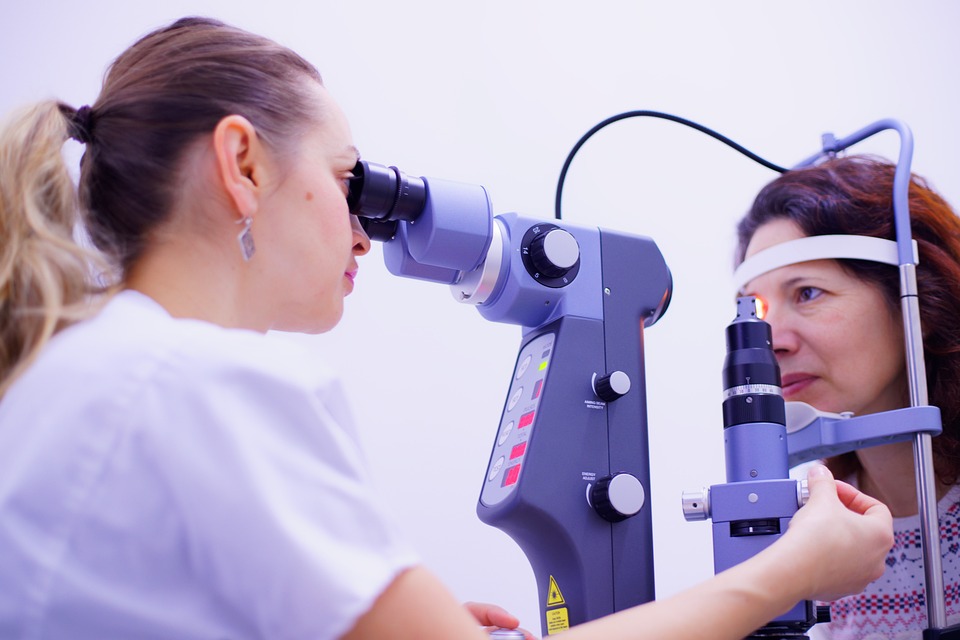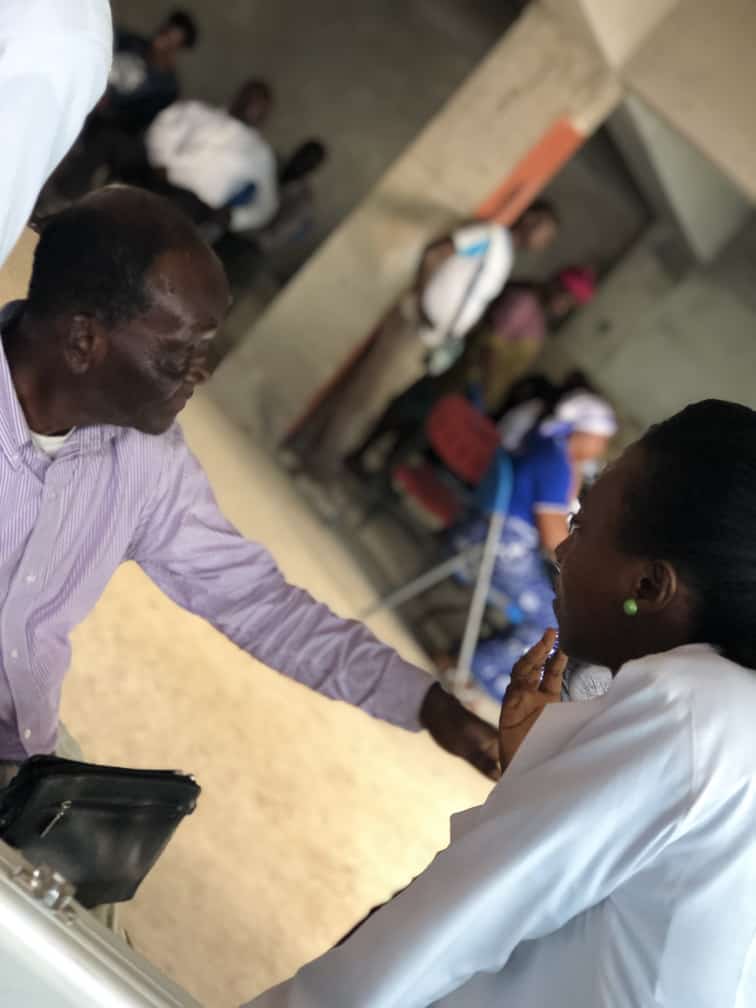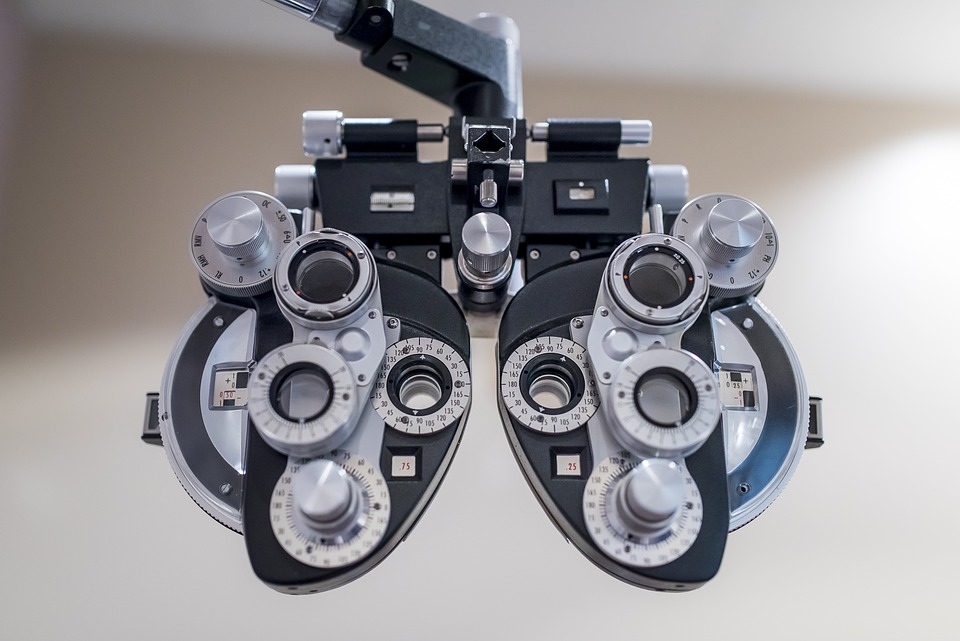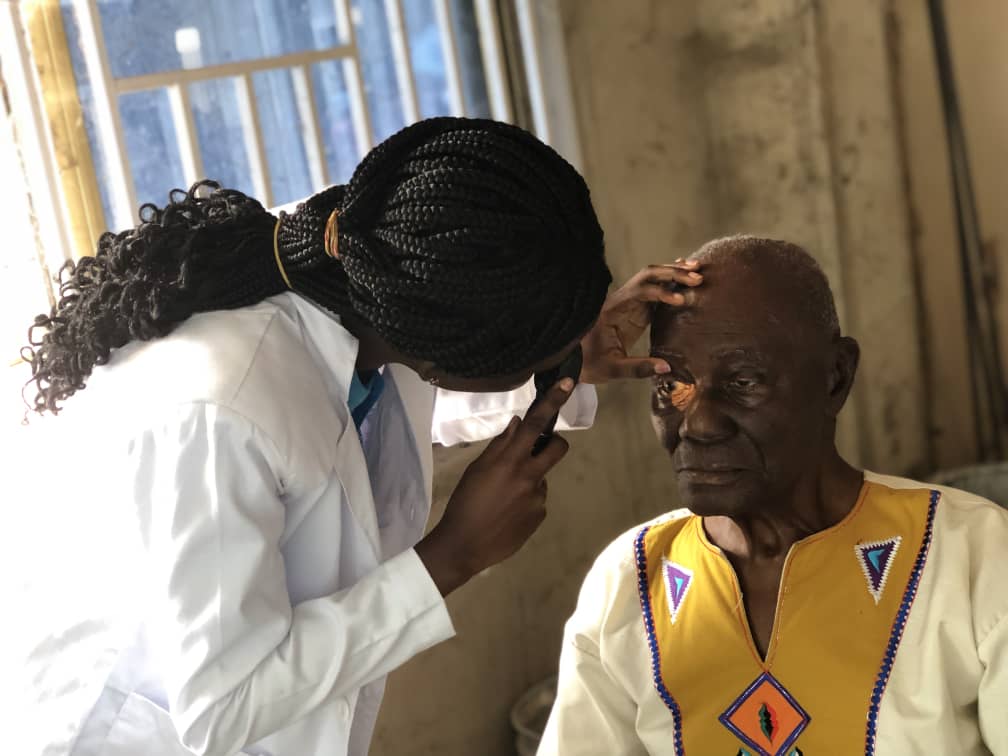When To Have Your Eyes Check
Greeting to all and sundry,
It is another beautiful day today, the week has started quite well and I believe that it would end well for us all. I just realized that January will still take a part of next week though, this month just doesn't want to end from the look of things.

Anyway, I am here on your blogs once again and as you may know me by now I am always about health and ocular care, perhaps thus why I continue to remain your favorite Optometrist. Today I want to briefly discuss with you about when you ought to get your eyes checked and I hope you enjoy it as always.
Introduction
I see patients daily and I get to meet many patients every day who are old enough to be grandparents and yet would be coming in for their first eye examination since they were born. It turns out that even their coming was a result of some discomfort they felt that refused to go away after they waited it out or because of the blurriness they are feeling now.

For the lucky ones, it turns out to be the formation of cataracts on the eye which is affecting their vision that ends up bringing them in, for the unlucky ones they end up with a progressed glaucoma diagnosis with irreversible loss of vision, and for some its other conditions such as uveitis, etc.
But then at the end of the day when I ask them how come they have yet to have a checkup at the eye clinic throughout their entire life, they end up throwing my question back at me, asking when they could have done it because to them they never felt any discomfort on the eye that warranted they see the Optometrist and so I've decided to share my understanding with us today.
When to Check Your Eyes
@lemouth would tell you that he had his first pair of glasses around the age of 7 years and he has been wearing it since because he is a myope, even without adding more information it gives you an idea that he probably had his first eye exam earlier than that which is quite good and the recommended way.

However, not many people are privileged to this opportunity or this knowledge and so if you find yourself at the other side of the fence like a lot of my patients then you may only come in when your eyes get blurry due to senile presbyopia or senile cataract. But ideally, your should have your baby's eyes checked within the first week of his birth.
This would help detect congenital conditions very early for management so the child does not suffer any irreversible damages, congenital glaucoma could easily result in blindness, thank God for the flexibility of the baby's eyes had it not been that some babies would have lost their vision even before they got the chance to see the world.
Other conditions such as congenital cataracts may also warrant surgical excision within the shortest possible time although the baby may have to be given some time for growth. Then you should probably check your child's eyes again after a month, 3 months, 6 months, and a year. Do not feel like you wasted your time seeing the Optometrist because there was nothing wrong with your child.
Instead, be grateful that your child's eye health is fine and that development is going the normal way. When your child reaches preschool age you should do another visit to the Optometrist, it is during this time that refractive errors start to rear its head by the time they are around 7-10 years refractive errors would have already established themselves, and this could easily affect their academics and provide a bad start for them.
If your child happens to need glasses early in life do not be perturbed rather be grateful that it was discovered early, a lot of people are walking around with very bad vision and yet do not even know that how they are seeing is not the optimal level until they have their first eye examination. If you are a glass wearer ensure that you visit your Optometrist at least every 2 years to check your error.

Aside from the case of refractive error, you should make it a habit to pass by the eye clinic at least once every year just to see how your eyes are fairing, do not see this as a waste of time when you go and your eyes are in perfect health because it is by doing so that we can detect silent pathologies like glaucoma early and save your sight.
Conclusion
And so those are some basic answers to the question of when I have to get my eyes checked, I hope that it helps you and your friends and families in maintaining a healthy ocular function, When in doubt always consult a professional, it is better safe than sorry.

Avoid over-the-counter medication without proper consult and diagnosis, remember that a lot of time vision loss is irreversible. Thank you for reading and for your time, it is very much appreciated.
PS: I would want to start a vlog on 3speak about the eye just as I have been doing here and I would want to know your thoughts on it, I believe people find it easier watching videos to reading though and I'd wanna combine them for the benefit of my audience, let me know your thoughts on that. Thank you once again.
Further Reading
Snowdon, S. K., & Stewart-Brown, S. L. (1997). Preschool vision screening. Health technology assessment (Winchester, England), 1(8), i–83.
Robinett, D. A., & Kahn, J. H. (2008). The physical examination of the eye. Emergency medicine clinics of North America, 26(1), 1–v. https://doi.org/10.1016/j.emc.2007.11.007.
Edwards, G., Aman Ullah, M., & Sunderesan, R. (2023). Atypical newborn eye examination. Archives of disease in childhood. Education and practice edition, 108(1), 66–67. https://doi.org/10.1136/archdischild-2020-321279.
Ratnarajan, G., Newsom, W., French, K., Kean, J., Chang, L., Parker, M., Garway-Heath, D. F., & Bourne, R. R. (2013). The impact of glaucoma referral refinement criteria on referral to, and first-visit discharge rates from, the hospital eye service: the Health Innovation & Education Cluster (HIEC) Glaucoma Pathways project. Ophthalmic & physiological optics: the journal of the British College of Ophthalmic Opticians (Optometrists), 33(2), 183–189. https://doi.org/10.1111/opo.12029.
Ignorance truly destroys things, I have hard stories of parents who will begin to pray seriously for a child who needs glasses because they believe it has to be some sort of spiritual problems, so sad. Early detection will save a lot.
Awww, thus quite unfortunate, not condemning religion or prayers but these instances sadden me a lot of times, and the worst thing is the child will be at the receiving end of all this
One of the part of our body we must constantly checked upon is our eyes. It is very essential because constant check up of the eye will helps us prevent eye blindness
Exactly, you couldn't have said it any better bro, thanks for passing through
Thanks for your contribution to the STEMsocial community. Feel free to join us on discord to get to know the rest of us!
Please consider delegating to the @stemsocial account (85% of the curation rewards are returned).
Thanks for including @stemsocial as a beneficiary, which gives you stronger support.
Actually, I had it quite late. I was complaining at school about not being able to see the blackboard for months before I actually got my first appointment, so that my first glasses were already of a quite high dioptre. Knowing that, we checked my kids very early and they both wear spectacles since they were 4-6.
Haha thus interesting, but atleast it paid off for your kids and I’m hoping this writeup will also pay off for some kids out there whose parents may be reading this today. Thanks for the feedback Prof😌
You are welcome my friend :)
Congratulations @nattybongo! You have completed the following achievement on the Hive blockchain And have been rewarded with New badge(s)
Your next target is to reach 56000 upvotes.
You can view your badges on your board and compare yourself to others in the Ranking
If you no longer want to receive notifications, reply to this comment with the word
STOPTo support your work, I also upvoted your post!
Check out our last posts:
Support the HiveBuzz project. Vote for our proposal!
Thank you
I feel there is a very big problem when it comes to eye health. You are mentioning that the best thing would be a checkup in children from a very early age, even as young as 3 or 6 months, and see, this is something that is generally not done.
There is a great inclination to talk about vaccines at those ages, or about nutrition, about the importance of breastfeeding, but not about ophthalmologic assessment. And I understand that it is not easy for a general practitioner to assess that part, but that is what specialists are there for.
I even think that the problem comes from the basic medical training, in which although the most common diseases are studied, they do not go further in this aspect, and above all in prevention from an early age.
I think the problem that many people go very late to an optometrist also has to do with the fact that the body's adaptation process allows the person to continue seeing relatively well, and they will only go for consultation when the situation is serious. This is already an assumption.
Thank you for this topic @nattybongo
Your assumptions are very right and on point, the eye always tries to adapt even when things ain’t going well, thus why in hyperope the eye will keep trying until the person can’t bare the asthenopia anymore and eventually see the optometrist or ophthalmologist.
Hopefully in the years ahead as we all continue to learn more everyday things would get better for us and for our patients as ophthalmologist assessment come to be done earlier in life.
Thanks for your time Doc